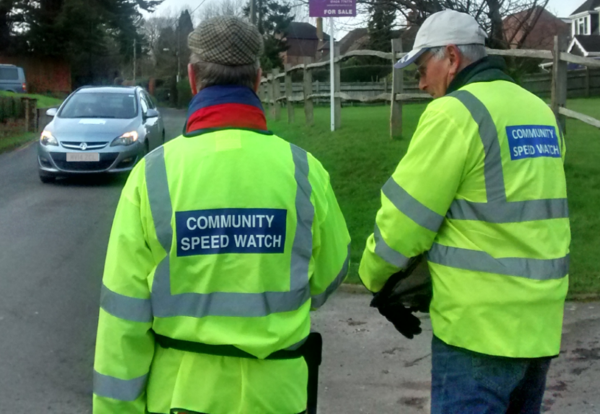|
|
 If an overwhelming majority of
drivers recorded speeding react
positively to an educational
letter and change their
behaviour as a result, why
penalise them with fixed
penalties and points on their
license when observed offending
the first time? This is not
sensible. If we can de-normalise
speeding with personalised
educational, i.e. behavioural
insight mechanisms, we can
save the British state a vast
amount of money and time otherwise spent on roads policing and potential prosecution. Education first, enforcement focused on the identified habitual offenders second. That makes economic sense, too.
If an overwhelming majority of
drivers recorded speeding react
positively to an educational
letter and change their
behaviour as a result, why
penalise them with fixed
penalties and points on their
license when observed offending
the first time? This is not
sensible. If we can de-normalise
speeding with personalised
educational, i.e. behavioural
insight mechanisms, we can
save the British state a vast
amount of money and time otherwise spent on roads policing and potential prosecution. Education first, enforcement focused on the identified habitual offenders second. That makes economic sense, too.
The misconstrued perception that speed cameras are 'cash-cows'; that the police are wasting their time stopping speeders "instead of catching real criminals" - (speeding is a crime and kills more people than most other crimes), and that nothing happened because the speed limit was exceeded by 5-10MPH, is not an uncommon opinion expressed by many people. Surveys indicate that 52% of drivers confess to speeding on a regular basis. If this proportion of speeding offences is applied to all UK drivers, we are in a situation where no police force anywhere will ever be able to deal effectively with the scale of the problem - let alone rely on the capacity of the Crown Prosecution Service (CPS), the courts, or the correctional services.
Denormalisation through education will always be more effective than unsuitable or unsustainable threats, intimidation, and fear mongering. The Speedwatch educational process reacts instantly; it is focused, direct, and appeals more positively to the accidental speeder's sensible understanding of the consequences in a very personally relatable manner.
We need to be reasonable ...
Everyone speeds occasionally. It is unavoidable but most drivers do it unintentionally; others do it habitually - some even at dangerous levels. It is drivers in the latter category who need police attention and intervention. However, anyone caught speeding unintentionally by the police or by a fixed/mobile roadside camera, and presented with a fine, points on their license, or the cost of time and money to attend a Speed Awareness Course, will probably feel a degree of resentment towards the randomness of the current speed enforcement regime. Eventually, this perception builds general hostility and suspicion towards the otherwise good work the police and some road safety organisations do to prevent traffic collisions.
Therefore, we need to build an understanding of who the habitual speeders are, and how we can be more lenient with the unintentional speeders. A driver's first offence must be followed by an educational warning letter - not an unrecorded word-of-advice at the roadside, or a penalty notice.
|
|
